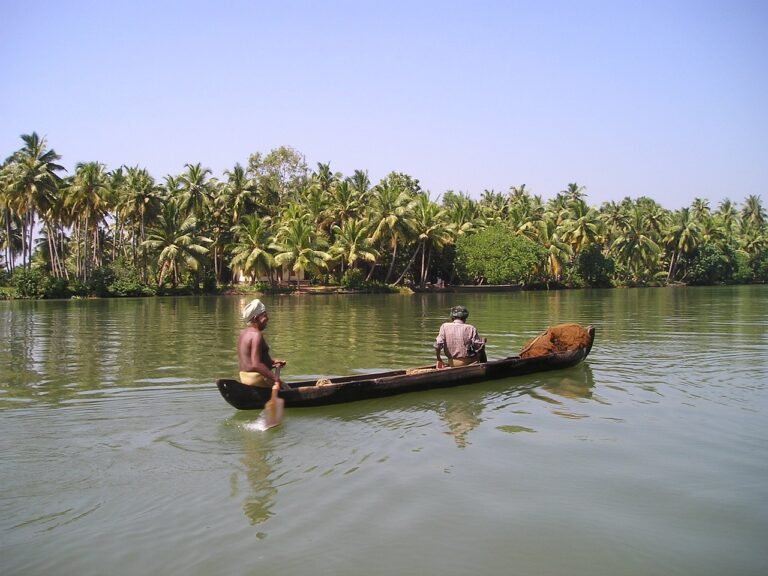The Importance of Diversity in PAC Leadership
bet book 250.com, 11xplay online, yolo 247 login: Political Action Committees (PACs) play a significant role in shaping environmental policy in the United States. These organizations work to influence policymakers and advocate for specific environmental issues through financial contributions to political candidates and campaigns. In this article, we will explore how PACs impact environmental policy and the ways in which they contribute to the ongoing debate surrounding environmental protection.
Understanding PACs and Their Influence
PACs are organizations that raise and spend money to support or oppose political candidates, parties, or issues. They are a common feature of the American political landscape and play a crucial role in shaping public policy. PACs can represent a wide range of interests, from labor unions and businesses to advocacy groups and environmental organizations. Their primary goal is to support candidates who share their values and advance their policy objectives.
When it comes to environmental policy, PACs representing environmental groups work to advance legislation that promotes conservation, clean energy, and other environmental priorities. These PACs often support candidates who have strong environmental records and advocate for policies that protect the environment and address climate change. By providing financial support to these candidates, environmental PACs can help shape the national conversation on environmental issues and influence the decisions made by policymakers.
The Influence of PAC Money on Environmental Policy
One of the primary ways in which PACs shape environmental policy is through campaign contributions. By donating to political candidates who support their agenda, PACs can help ensure that environmental issues receive attention and consideration from policymakers. This financial support can give candidates the resources they need to run effective campaigns and win elections, ultimately increasing the likelihood that environmental policies will be prioritized.
In addition to direct contributions to candidates, PACs can also spend money on advertising and other forms of communication to promote their policy objectives. By raising awareness about environmental issues and advocating for specific policies, PACs can influence public opinion and encourage policymakers to take action on key environmental issues. This type of advocacy can be especially effective in shaping the debate around controversial issues such as climate change and energy policy.
Challenges and Controversies Surrounding PACs and Environmental Policy
While PACs can play a positive role in shaping environmental policy, there are also challenges and controversies associated with their influence. Critics argue that PACs can exert undue influence on policymakers by providing financial support in exchange for favorable treatment on specific issues. This can lead to accusations of corruption and undermine public trust in the political process.
Additionally, some environmental advocates have raised concerns about the influence of corporate PACs on environmental policy. These PACs represent the interests of businesses that may have a stake in environmental regulations and resource management. Critics argue that corporate PACs can push for policies that prioritize profits over environmental protection, leading to weaker regulations and less effective conservation efforts.
Despite these challenges, PACs remain a powerful force in shaping environmental policy in the United States. By supporting candidates who prioritize environmental issues and advocating for policies that protect the environment, environmental PACs can help drive progress on key environmental challenges.
The Future of PACs and Environmental Policy
As environmental issues continue to gain prominence in national politics, the role of PACs in shaping environmental policy is likely to become even more significant. With growing public awareness of climate change and other environmental challenges, PACs representing environmental groups will play a crucial role in advocating for strong environmental protections and promoting sustainable policies.
Moving forward, it will be essential for PACs to continue working to hold policymakers accountable and push for meaningful action on environmental issues. By engaging with legislators, supporting candidates who prioritize environmental protection, and mobilizing public support for key environmental initiatives, PACs can help drive progress on critical environmental challenges and shape the future of environmental policy in the United States.
FAQs
1. What is a PAC?
A Political Action Committee (PAC) is an organization that raises and spends money to support or oppose political candidates, parties, or issues.
2. How do PACs influence environmental policy?
PACs can influence environmental policy by providing financial support to candidates who prioritize environmental issues, advocating for specific policies, and raising awareness about key environmental challenges.
3. Are PACs regulated?
Yes, PACs are subject to regulations and disclosure requirements set forth by the Federal Election Commission (FEC) to ensure transparency and accountability in political fundraising and spending.







